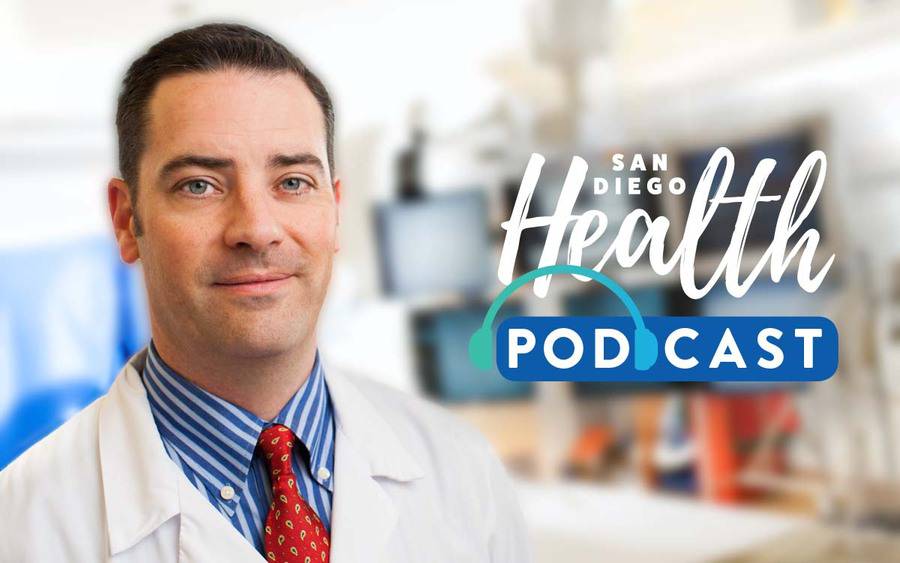What Is Coronary Artery Disease? (podcast)
Many treatment options for most common form of heart disease

Many treatment options for most common form of heart disease
According to the Centers for Disease Control and Prevention, coronary artery disease is the most common form of heart disease in the US. Coronary artery disease occurs when the blood vessels that carry blood to the heart narrow or become blocked due to the hardening of the blood vessels and buildup of plaque, or possibly from a blood clot. The process can start as early as the 20s or 30s and progresses as we age.
In this episode of San Diego Health, host Susan Taylor and Curtiss Stinis, MD, an interventional cardiologist at Scripps Clinic John R. Anderson V Medical Pavilion in La Jolla, discuss who’s at risk for coronary artery disease, the symptoms, and how lifestyle changes, such as quitting smoking and controlling diabetes, may help prevent blocked arteries. Your physician can test for heart problems and many treatment options are available.
Listen to the episode on what causes coronary artery disease
Listen to the episode on what causes coronary artery disease
Podcast highlights
Lightly edited for clarity
Watch the San Diego Health video on blocked arteries
Watch the San Diego Health video with Susan Taylor and Dr. Stinis discussing what causes blocked arteries and treatments.